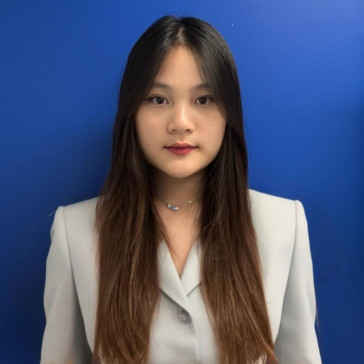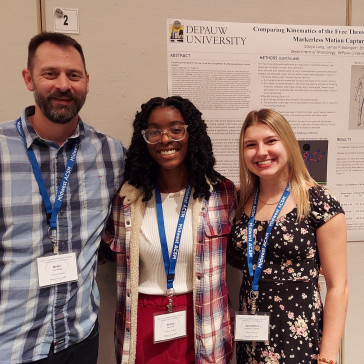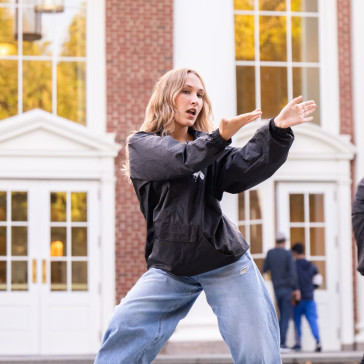Jordan Sjol | Faculty
I always see the class as being a collaboration.
Jordan Sjol Faculty
The Perfect Place for Filmmaking
Jordan Sjol may be relatively new to the DePauw University faculty, but as assistant professor of film and media arts, he’s well aware of the historical reputation its students and alumni have had when it comes to visual storytelling.
“DePauw has had a film studies program for a very long time in which there has been a lot of energy around filmmaking,” he says. “We have many students who have made films and many alumni who are working in the industry.”
Sjol sees this as a reflection of the determination and ingenuity that characterize the individuals on this campus.
“Part of what has been so great about filmmaking here is that it has come out of the irrepressible creativity of a large group of students. These are students who, even if they didn't have a path that was laid out in front of them to go through a set filmmaking curriculum, wanted to make films. And so they figured out how to make films. Fundamentally, I think that's how filmmaking works.”
As a growing number of DePauw filmmakers garner recognition throughout the industry – from the most critically acclaimed festivals to the most commercially successful streaming platforms – Sjol is working hard to train the next generation of visual storytellers who will soon join them. It’s all part of his work to help transform DePauw’s film studies program into its newest iteration: film and media arts.
“We're really emphasizing both critical studies and creative practice,” he explains. “The transition has included a total curricular overhaul. One of the big differences now is that we have two introductory classes: Introduction to Film and Media Arts, which is our introduction to the critical side that's been taught in different ways for a really long time, and Introduction to Digital Film Production, which is where you learn to use a camera, learn to do lighting, learn to record sound, learn the conventions of narrative cinema and come out being able to make your own short films within the span of a semester. Everyone who goes through the program has at least an introduction to both of these things.”
As a filmmaker himself, Sjol understands the necessity of both competencies. “You can't be a filmmaker without having some appreciation of the critical ways of approaching film,” he explains. “And you can't be a theoretician without at least having gotten your hands around the camera.”
Sjol has experience with both, and he’s bringing that experience into this revamped film and media arts program. He’s already introduced several new courses ranging from television screenwriting to smartphone filmmaking. Yet despite his confidence that these new learning environments will give students an entirely new level of functional know-how, he’s approaching each one as an ongoing work in progress.
“I hope that one of the things I'm able to do in class is model failure. There are things in the classes that don't work the first time you try them, that don't operate the way that you think they're going to. I try to use that as a moment to talk to my students, to get their feedback, to see what they think and to go through the process of figuring out how to improve what we're doing together.”
These conversations are expressions of Sjol’s broader educational philosophy, which prioritizes the collaborative nature of learning and the importance of student initiative. “I don't want students in my class to feel like their learning is more my responsibility than it is their responsibility,” he says. “I always see the class as being a collaboration in which I can teach and facilitate, but fundamentally, the learning that comes out of it is a collaboration between me and the students.”
In other words, Sjol is creating film courses that serve as microcosms of the broader liberal arts framework for education. In addition to nurturing creativity and the ability to draw connections between multiple concepts and ideas, these courses are meant to invite students to find their place in an ongoing dialogue with both peers and mentors.
“I think film is in a perfect place within the liberal arts,” he says, “because it is creative, because it is critical, because it is multidisciplinary, because it is collaborative. These are all of the things we should get out of a liberal arts education. They’re valuable for any artist, but for filmmakers in particular.”
Our Community Stories

Starting Early
Gigi Nguyen
"Before I even arrived at DePauw in Fall 2021, I had a conversation with a senior student that changed…
Discover Gigi Nguyen
Invaluable Research Experience
Star Long
Star Long came to DePauw with plans to major in kinesiology, go off to graduate school and become a physical…
Discover Star Long
Endless Curiosity
Marielle Gearding
Theatre. Neuroscience. Creative writing. True crime. Dance. Marielle Gearding ’27 has no shortage of…
Discover Marielle Gearding